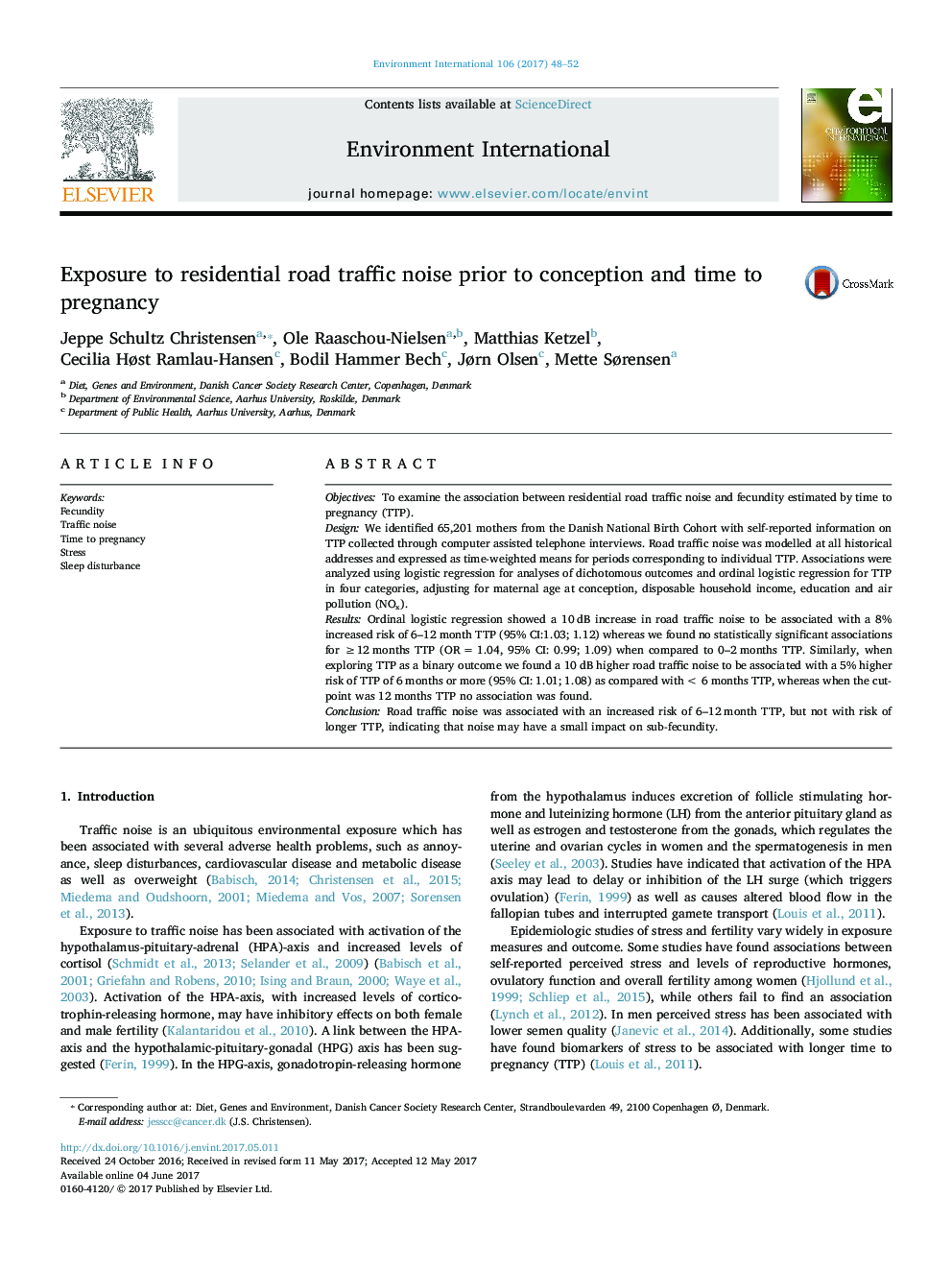| کد مقاله | کد نشریه | سال انتشار | مقاله انگلیسی | نسخه تمام متن |
|---|---|---|---|---|
| 5748373 | 1619024 | 2017 | 5 صفحه PDF | دانلود رایگان |
- Traffic noise induce sleep disturbance and stress.
- Sleep disturbances and stress may affect the fecundity (time to pregnancy).
- A large cohort study with historical, residential modeling of traffic noise.
- We find small effects of traffic noise on a time to pregnancy of 6 months or more.
ObjectivesTo examine the association between residential road traffic noise and fecundity estimated by time to pregnancy (TTP).DesignWe identified 65,201 mothers from the Danish National Birth Cohort with self-reported information on TTP collected through computer assisted telephone interviews. Road traffic noise was modelled at all historical addresses and expressed as time-weighted means for periods corresponding to individual TTP. Associations were analyzed using logistic regression for analyses of dichotomous outcomes and ordinal logistic regression for TTP in four categories, adjusting for maternal age at conception, disposable household income, education and air pollution (NOx).ResultsOrdinal logistic regression showed a 10 dB increase in road traffic noise to be associated with a 8% increased risk of 6-12 month TTP (95% CI:1.03; 1.12) whereas we found no statistically significant associations for â¥Â 12 months TTP (OR = 1.04, 95% CI: 0.99; 1.09) when compared to 0-2 months TTP. Similarly, when exploring TTP as a binary outcome we found a 10 dB higher road traffic noise to be associated with a 5% higher risk of TTP of 6 months or more (95% CI: 1.01; 1.08) as compared with < 6 months TTP, whereas when the cut-point was 12 months TTP no association was found.ConclusionRoad traffic noise was associated with an increased risk of 6-12 month TTP, but not with risk of longer TTP, indicating that noise may have a small impact on sub-fecundity.
Journal: Environment International - Volume 106, September 2017, Pages 48-52
